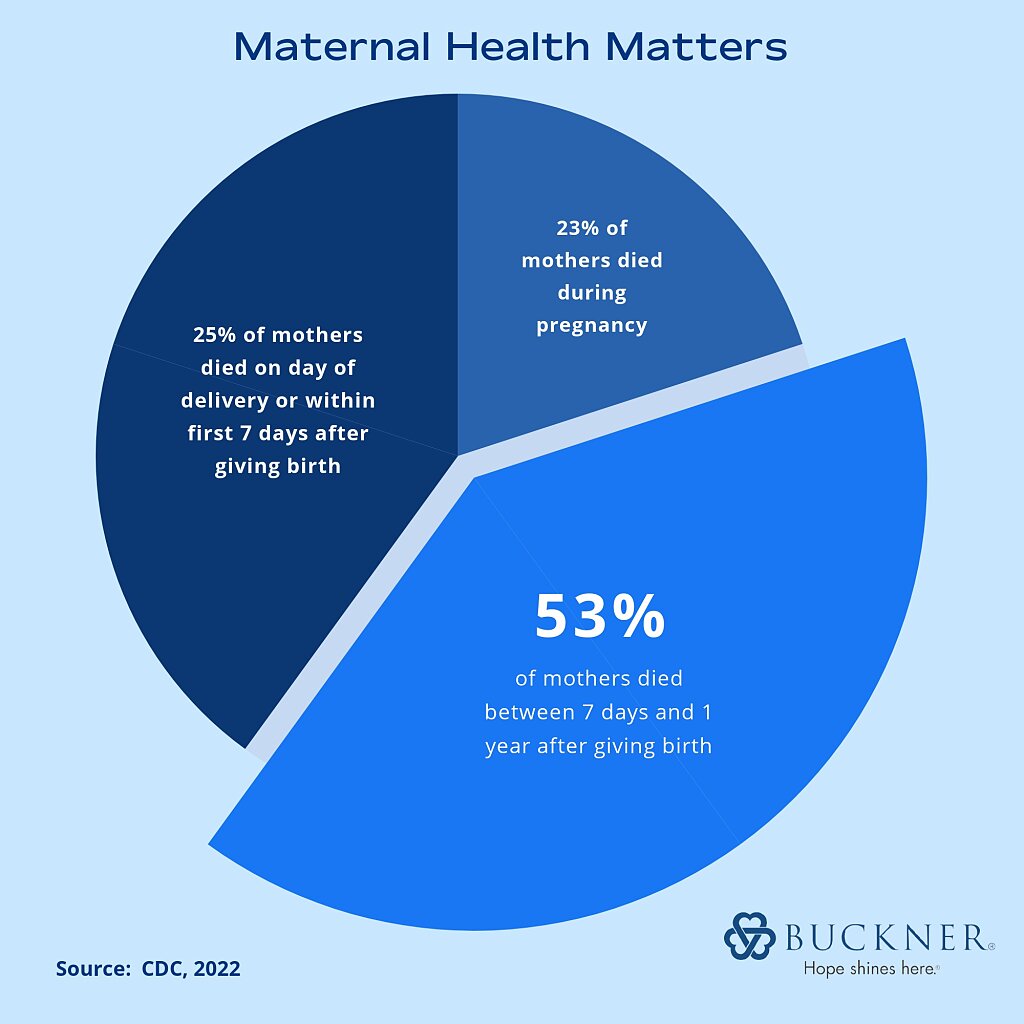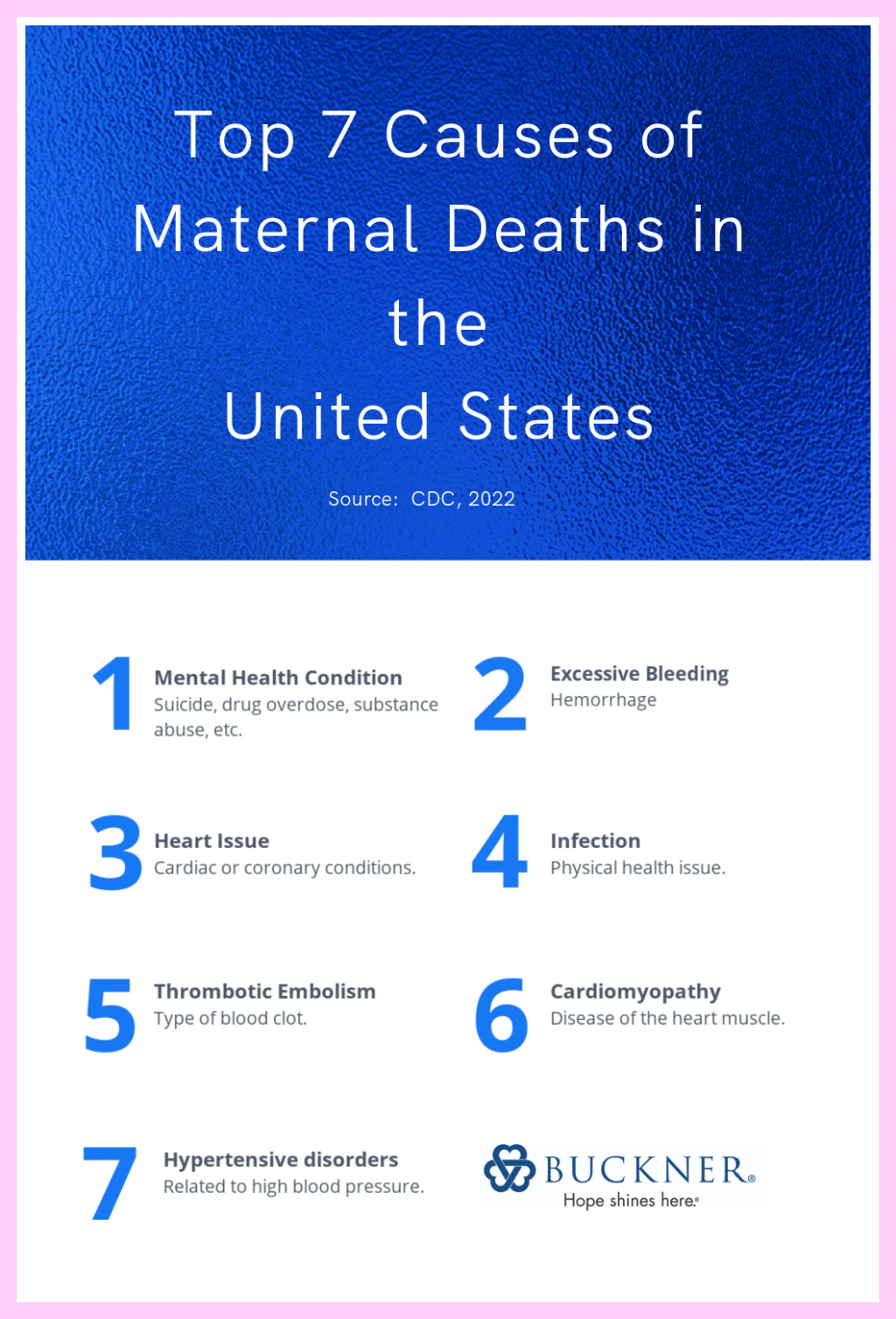The importance of maternal health
What is maternal mortality and why is maternal mental health critical for mothers?
Motherhood is miraculous. Think how complex the human body is and then imagine how a complex human body even originates – inside the body of a female! This is no simple feat for a female body and mind to endure. It takes a lot physically and mentally to build a baby as a female goes about her everyday life. Her body adapts, adjusts and accommodates the needs of her baby as he or she grows. But what about the needs of the mother as she builds a baby?
It is important to discuss just how important maternal physical and mental health are before, during and after pregnancy, not only to a baby but also to the mother. Although we live in an age where electric cars are a thing and nearly everyone has a smartphone, not all females have access to quality physical and mental healthcare in 2022. A lack of access to quality care can impact a mother’s mortality and long-term health. First, what is maternal mortality?
Maternal mortality is when a mother dies during pregnancy, during delivery or after delivery (up to one year after giving birth). Are you surprised by these statistics, particularly that 53% of mothers died within the first week up to one year after giving birth? What may be more surprising is the leading cause of maternal deaths.
 If you’ve ever traveled on a commercial airline flight, chances are you’ve heard the flight attendant or voice on the training video say, “In the event of an emergency, put your oxygen mask on first before helping others.” This is so true for mothers. How can a mother care for her baby, in utero or after giving birth, if she is unwell, either physically or mentally?
If you’ve ever traveled on a commercial airline flight, chances are you’ve heard the flight attendant or voice on the training video say, “In the event of an emergency, put your oxygen mask on first before helping others.” This is so true for mothers. How can a mother care for her baby, in utero or after giving birth, if she is unwell, either physically or mentally?
Did you know four in five pregnancy-related deaths in the United States are preventable? According to the CDC, there are seven top causes of maternal deaths.
 Mental health conditions account for 23% of maternal deaths. Let that statistic sink in. The top reason causing maternal death is mental health related.
Mental health conditions account for 23% of maternal deaths. Let that statistic sink in. The top reason causing maternal death is mental health related.
Why aren’t there more resources for females to help avoid this statistic in America? What can people do to help females who may be suffering in silence and don’t know where to turn for help?
First, education. When you know better, you can do better.
Second, understand not all females have a village of support or access to quality care. Simple gestures can help relieve stress and tasks for new mothers. While this will not solve physical or mental health issues, it can free up time for the new mother to breathe and reduce stress.
Third, advocacy. When a female is building a baby or caring for a baby after he has been delivered, the mother may struggle to have time to care for herself, let alone research resources for help. Find local community resources to help get the word out to mothers who may not have time to find them for herself. Also, the more people understand about the statistics, the more can be done to improve healthcare for mothers.
How does a female’s self-care impact her unborn child?
Now that you know the maternal health risks for females, we must consider the impact of maternal death on her child(ren). The loss of a parent is traumatic for a child no matter what age the child loses the parent, and no matter how they lost their parent. Lifelong challenges may face the child because he does not have his biological mother.
Oftentimes our society places an emphasis on children, which is completely appropriate considering all children are vulnerable and cannot care for themselves. However, sight is lost on the importance of mothers to the equation of children’s long-term mental health and their prospects of growing up safe and confident. When mama isn’t well, children will not be well. We must help take care of mothers if we truly want to care for children.
How does maternal health impact children prenatally and postnatally?
When a child grows in his mother’s womb, there are several milestones generally measured in weeks. In the sixth week of pregnancy, a baby’s brain and spine develop from the neural tube and the heart and major organs begin to form. While this is a fascinating and miraculous process, it can also be overwhelming for a mother. Her body is adjusting and there are major life changes on her horizon. It is a lot to absorb, and she may feel things are beyond her control with what is happening inside her, even if she is joyful.
When a baby grows inside his mother’s body, he feels what his mother feels. If she eats nutritious meals, this helps the baby grow and develop appropriately. If the mother struggles with access to nutrition, the baby may be impacted and not grow optimally. While most people can understand the impacts of nutrition and a mother’s physical health, what isn’t discussed enough is the effect of a mother’s mental health on her unborn or young child. Once we acknowledge that mental health is a real thing affecting mothers in our society today, then, and only then can we have open conversations to help mothers gain access to needed care for her own benefit and that of her child.
What races and ethnicities are most affected by maternal health issues?
Underlying causes of maternal mortality can vary by race and ethnicity. No race or ethnicity is spared from impacts of maternal health issues. According to the CDC, heart health issues were the top issue for Black females. Mental health issues were the top maternal health issue for Hispanic and white females. Hemorrhage was the top cause of death for Asian females.
What can you do to help a female who is pregnant so she does not become a statistic for maternal death?
- Know the statistics. With mental health being the overwhelming top reason females die from maternal issues, some mothers may not be able to voice her challenges. There’s a lot of pressure on new mothers to do all the things and be all the things while sacrificing her own needs. Truly ask a mother how she is doing and offer to take something off her plate, like bringing her a meal or giving her respite so she can rest or run errands without worrying about quality childcare.
- Know your community’s resources. What do you do if you encounter a mother in a mental or physical health crisis? It’s important that mothers see licensed health professionals who can diagnose and care for the female’s individual needs. Research what options are available in your community for females who do not have insurance benefits that cover mental health. What organizations can you refer her to?
- Show her compassion and empathy. There is tremendous responsibility when a mother is growing or has grown a human life inside her body. Postdelivery, mothers may struggle with body image, hormone adjustments and intense emotions, and more. In general, when people are sick or have had surgery, they get to rest and recover so their body can heal. But mothers go straight from building and delivering a baby to caring for another human life that is completely dependent on her for nutrition and all basic needs. It can be extremely joyful and beautiful but at the same time completely overwhelming. Extend compassion if a new mother needs extra time to adjust to her continuously changing world.
- Pray for her. Prayers are impactful and mothers may feel isolated and alone. Lift her up daily for seen and unseen needs. When you pray for the mother, you are praying for the female who is caring for a new child of God. We cannot care for children and not care for mothers.
Did you know Buckner's Life Design and Maternity Services counseling programs support women pre and postpartum?


Add a Comment